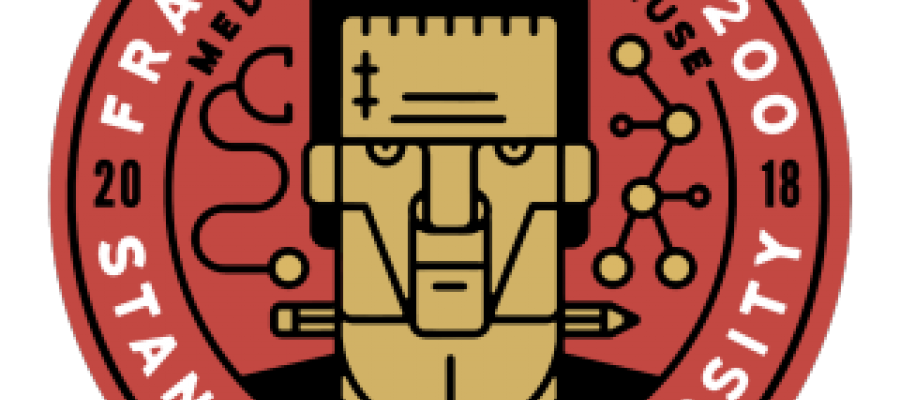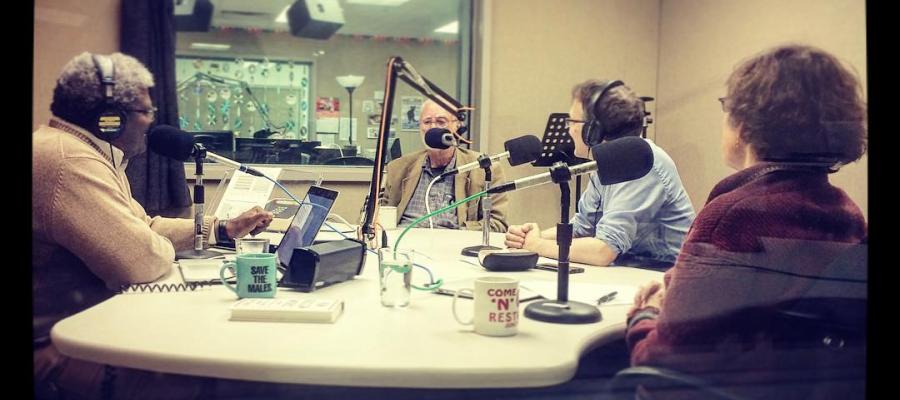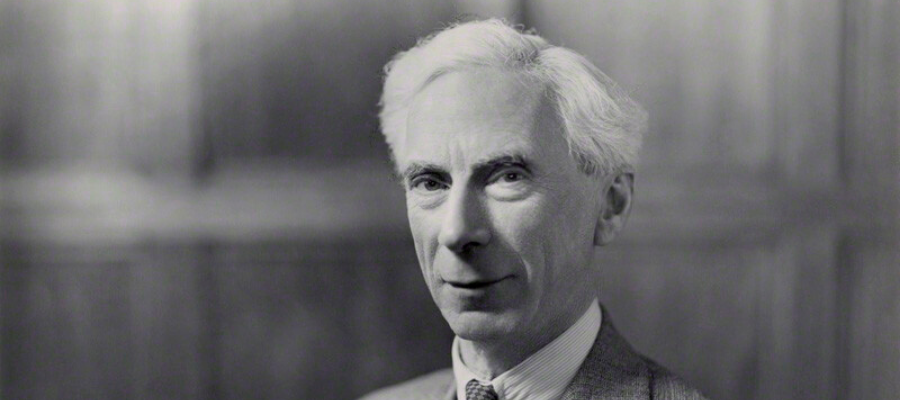What Makes a Monster?
22
Feb 2018
It's been 200 years since we've been captivated by Mary Shelley's tale of a man creating a living being. From the moment the creature is "born," its creator, Victor Frankenstein, calls it a monster. But why call it a monster? Because of its ugliness? Better yet, why did the outcome of Frankenstein's prized experiment have to turn out so repulsive? This podcast explores among other things the possibility that Frankenstein's education was monstruous to begin with, and hence, anything produced from such monstrous foundation was equally monstrous. Frankenstein was fascinated...
Read moreEnlightenment Peddlers
12
Jul 2018
This is the final installment of my series of essays on the so-called “intellectual dark web”—a loose confederation of talking heads, some of whom have a mind-bogglingly massive following, who promulgate philosophical, political, and psychological ideas, either primarily or entirely outside the formal academic universe (and who generally claim to have been driven to do so because academia is fatally infected with “political correctness” and is hostile to the full-blooded, open-minded, heroic pursuit of truth). Because the intellectual dark web thrives on consumer popularity rather than peer...
Read moreReverence for the Given? Further Thoughts on Cosmetic Neurology
23
Mar 2005
In my pre-show reflections, I tried to isolate what exactly was being claimed by those who worry about tinkering too much with the Wisdom of Nature. What that argument really comes down to, I think, is the claim that we ought to have a certain reverence for what I called the given order of things. I didn't say whether I thought that claim was true or false. We began to talk about it a bit on the air, but we barely scratched the surface. In this post-show post, I want to delve a little more deeply -- though I don't pretend to...
Read moreA Country is a Country
06
Mar 2017
A bizarre, somewhat tongue-in-cheek meditation by Point Maganize's Michael Kochin on the concept of a country. Part-historical, part-philospohical, the piece walks us through how America came about and what it meant that it did. The article struggles with the project of figuring out who should get to count as American, and thus touches on the immigration debate raging in American politics today. At its heart, the core question seems to be: what is America for? Here's the full link: https://thepointmag.com/2017/politics/a-country-is-a-country
Read moreTorture
16
May 2009
Although we have not had, and don’t have scheduled in the near future, a program on torture, that’s the topic of this blog. There are two reasons for this. The first is a thoughtful email from one of our listeners, Gregory Slater, who is pretty disgusted with us for not having a program on torture already. The second is that as we were discussing Lincoln today with Al Gini, we came to the question of whether Lincoln and George W. Bush should be thought to be equally culpable for their violations of the constitution in time of war. This discussion also reminded me...
Read moreWhy Rubio Is Wrong about Philosophy in 150 Words
10
Nov 2015
"Welders make more money than philosophers. We need more welders and less philosophers." -- Marco Rubio in the November 10 Republican Debate1. No. Philosophy majors make considerably more over the course of their careers than welders. (Source: http://nyti.ms/1HwzyH1 ) 2. It should be “fewer philosophers,” not “less philosophers.” Rubio would know that if he had majored in philosophy. 3. Carly Fiorina had a double major in philosophy...
Read moreBeing Human is Like Being Here
26
May 2014
In my last blog posting, I explained that “human” is a folk-category that doesn’t map clearly and cleanly onto scientific categories like Homo sapiens, and that consequently, science can’t tell us what it means to be human. This time I’m going to consider some folk-conceptions of the human to see if they can offer us anything that’s more useful. One way to get a handle on folk-conceptions of the human is to focus on the phenomenon of dehumanization. When people dehumanize others they exclude them from the category of human, usually with horrifying results. We see...
Read moreDeconstructing the College Admissions Rat Race
03
Sep 2011
Getting into the college or university of your choice – especially if it's highly selective one -- has become more daunting and more stress-inducing than ever before. The odds are stacked against students from the start. Consider Stanford. This year we had just over thirty two thousand applications to fill about sixteen hundred freshmen slots. So we accepted just seven percent of those who applied. Those are astounding numbers. And Stanford's not alone. Harvard admitted seven percent of its applicants, while Yale admitted eight percent and...
Read moreWhen Do False Beliefs Exculpate? (Pt. I)
03
Dec 2020
Another month of pandemic. . . and another puzzle from me to distract you from it. For those of you who missed it so far, I’ve been doing philosophical pandemic puzzles since March, all of which are still available in the Philosophy Talk blog archive. As much as I enjoy doing these, I hope it will only be a few more months before I can bring the series to a close! My first puzzle was about beliefs (are they under voluntary control?), and this one is too. The present puzzle question is this: when do false beliefs exculpate someone of a moral wrongdoing? My focus is specifically on...
Read moreAncient Renaissance Woman
21
Jul 2023
In her time—the 4th century CE—Hypatia was one of the most famous philosophers in Alexandria, and indeed in the ancient world. She studied and taught mathematics, astronomy, and philosophy; under her leadership, the Alexandrian School was highly prestigious, right up there with the Academy of Athens. Students came from far and wide, and from a variety of faith traditions: some were Christians, some Jews, and some Pagans like Hypatia herself. Hypatia was a Neo-Platonist. Drawing on Plotinus and others, Hypatia taught her students about a purely intellectual divine force at the heart of the...
Read moreThe Examined Year: 2018 – Uncut
31
Dec 2018
Happy new year from your senior producer, here to offer a look behind the scenes at how this year's end-of-year special really happened. We spent one long December afternoon in the KALW studio recording the conversations for this episode (at least it felt long, since we did it all following the live broadcast of Foreign Aid -- or Injury). Co-host Debra Satz had stepped away from the program since being named Dean of Stanford's School of Humanities and Sciences last summer, but she'd committed to at least one more program on a topic of political economy. Given that we'd have her...
Read moreKen’s Unfinished Project
27
Dec 2019
One Sunday in the spring of 2007, John and I walked into the back room of KALW to find Ken singing. Back then I was both Ken’s PhD student and the director of research for Philosophy Talk, so it was always a treat to catch my advisor and boss being playful. He was coming up with different lyrics for Sinatra’s classic “Love and Marriage.” He sang: Norms and Nature! Norms and Nature! Go together like a… Ken, who had a lovely singing voice, was keeping his alive for the promos we were about to record. (Ben Manila, then producer of...
Read moreSome Thoughts on Problematic Arguments
06
Apr 2017
Jeff McMahan and Peter Singer—the latter a famous philosopher and public intellectual, the former famous enough among philosophers, but not so much among the broader public—wrote an article in The New York Times philosophy forum, "The Stone," that has gotten lots people I know and respect pretty upset. Some have reacted to the article with very reasoned and persuasive counter-arguments. Some have thrown in a good measure of anger and disgust at them in addition. You can check out the original article here: Who Is the Victim in the Anna Stubblefield Case?...
Read moreRumor, Suspicion, and Misinformation
28
Jul 2017
I’m sometimes shocked, as a researcher, at where my investigations lead. In the course of revising a new paper on experience and belief in the supernatural (co-authored with Michiel van Elk of University of Amsterdam), I received some comments that referred us to a book on sorcery “beliefs” and the HIV/AIDS epidemic in Zimbabwe. The referred-to book was Alexander Rödlach’s Witches, Westerners, and HIV: AIDS and Cultures of Blame in Africa. It was published in 2006. But its insights about rumor, suspicion, and misinformation are relevant today—not just for understanding Zimbabwe,...
Read moreThe World’s Greatest Country?
14
Nov 2017
American politicians love to say that America is the greatest country in the world. Of course, it’s never clear exactly how they are measuring greatness. They often seem to be talking about our founding principles. Now those do sound great on paper, even if we have seldom fully lived up to them. But I don't think actual greatness -- as opposed to potential greatness -- can be a matter of aspirational principles, especialy if those principles are seldom lived up to. So they must have something else in mind if they mean actual greatness, rather than just potential greatness....
Read moreWhat is it Like to Lose Your Identity?
17
May 2018
Hannah Upp has dissociative fugue, an extremely rare form of amnesia, in which people lose access to their autobiographical memory and personal identity. Because of her condition, Upp occassionally goes missing for a few days or even weeks without warning. During an episode of fugue, she is at loss of a sense of self. Without a coherent self-identity and collection of memories from the past, she becomes a different person from the Hannah Upp that her friends, family, and herself know her as. She was once found laying face down in the waters of New York Harbor after going missing for...
Read moreDescartes
29
Jul 2005
Tuesday we discuss René Descartes, who lived from 1596 until 1650 -- not very long, by my standards. Descartes was a French philosopher, scientist and mathematician who is the father of analytic geometry in mathematics and modern rationalism in philosophy. Pretty good for someone who died at 54.... For almost forty years I have taught Descartes' Meditations in my Introduction to Philosophy Class. The skeptical problem which he poses bring up a host of interesting problems which occupy us for the rest of the course: the external world, the self, God, and the relation between...
Read moreWhy Is Analytic Philosophy Dominant?
03
Mar 2017
How did analytic philosophy come to dominate Anglo-American philosophy departments? If you thought it was just because it is the superior kind of philosophy, well, that might be your bias showing. Some seemingly important developments in the history of thought are determined by rather uninspiring and unglamorous contingencies, like rivalries or personal idiosyncracies. The Daily Nous recently discussed a new essay, "On the emergence of American analytic philosophy" by Joel Katzav and Krist Vaesen, published in the British Journal for the History of...
Read moreThe Irrationality of Human Decision Making
22
Jul 2010
Our topic this week is the irrationality of human decision making. As philosophers, I’m sure that John and I would like to believe that we make decisions in a perfectly rational way. Indeed, I’m sure that most people think of themselves as pretty rational decision makers. How would thoroughly rational decision making go? Well, first, you’d decide what things you want, and how much you really want them. Second, you’d survey your options for getting what you want. Third, you would assess the upside benefits and...
Read moreSuscribe to the Phiosophy Talk Download Service!!
26
Aug 2007
We are very pleased to announce that Philosophy Talk has launched a subsciption-based download service. For more details and to sign up now go to our webpage There you can subscribe to Philosophy Talk downloads for automatic, weekly delivery. By subscribing to our download service, every future epsiode of Philosophy Talk will be delivered to you shortly after it has completed its broadcast run. In addition, you can download your favorite programs from our archive of nearly 150 past episodes. About one-third of the archive is online and available for immediate downloading, with more episodes...
Read moreWhy Does Anything Exist?
07
Apr 2016
Why is there something rather than nothing? That’s the big question we’re asking in this week’s show. It’s an odd question that could be thought of as either supremely profound, or supremely silly. It’s hard to know what an answer might even look like. To get us started thinking about it, let’s distinguish between reasons and causes. When we ask why something is the case, depending on our purposes and what kind of explanation we seek, we might be asking for a reason, or we might be asking for a cause. For example, when we ask, “Why did the chicken cross...
Read moreUnconditional Love
07
May 2015
This week, we discuss love. Now we’ve talked about love a number of times before on the show. We ‘ve done shows on the varieties of love, on the nature of romantic love, a show called “Love, Poetry and Philosophy” in which we compared philosophical approaches to love with poetic approaches to love. All were great shows. So why do we feel the need to do yet another show about love? Well, partly because we’re such love obsessed people, but mainly because it’s a philosophically inexhaustible topic. Our...
Read moreGut Feelings
11
Dec 2014
This week’s show is about gut feelings—and the art of decision-making. Sometimes we make decisions that we think long and hard about, but often we make decisions simply because it feels right. Call it a hunch, an intuition, or an instinct—what they all have in common is that we don’t know why we feel the way we do, yet the feeling can be so compelling, it moves us to act. The question is, when should we listen to our gut feelings and make decisions based on something we can’t explain? And when should we stop to think? A first approach to this question might be to consider whether gut...
Read moreThe Self
21
Feb 2013
What is a self? Here’s is a really simple answer. I’m a self, namely, myself. You are a self, namely, yourself. A self is just a person, a living, breathing, thinking human being. We use the particle ‘self’ to form reflexive pronouns, like “myself” and “yourself”, and these pronouns, refer to persons. So there’s the simple theory of selves: selves are persons. But many philosophers would say that there is a difference between myself--- that’s just me, John Perry --- and my Self. This self as some sort of...
Read moreDigital Persons?
07
Jan 2022
Image by ClaudeAI.wiki Could robots ever have feelings that we could hurt? Should we hold them responsible for their actions? Or would that just be a way to let humans off the hook? This week, we’re asking “Could Robots Be Persons?” It’s the third and final episode in our series, The Human and the Machine, generously sponsored by the Stanford Institute for Human-Centered Artificial Intelligence (HAI). Before answering the question whether robots could ever be persons, we might want to ask why we would even want them to be persons in...
Read more




















